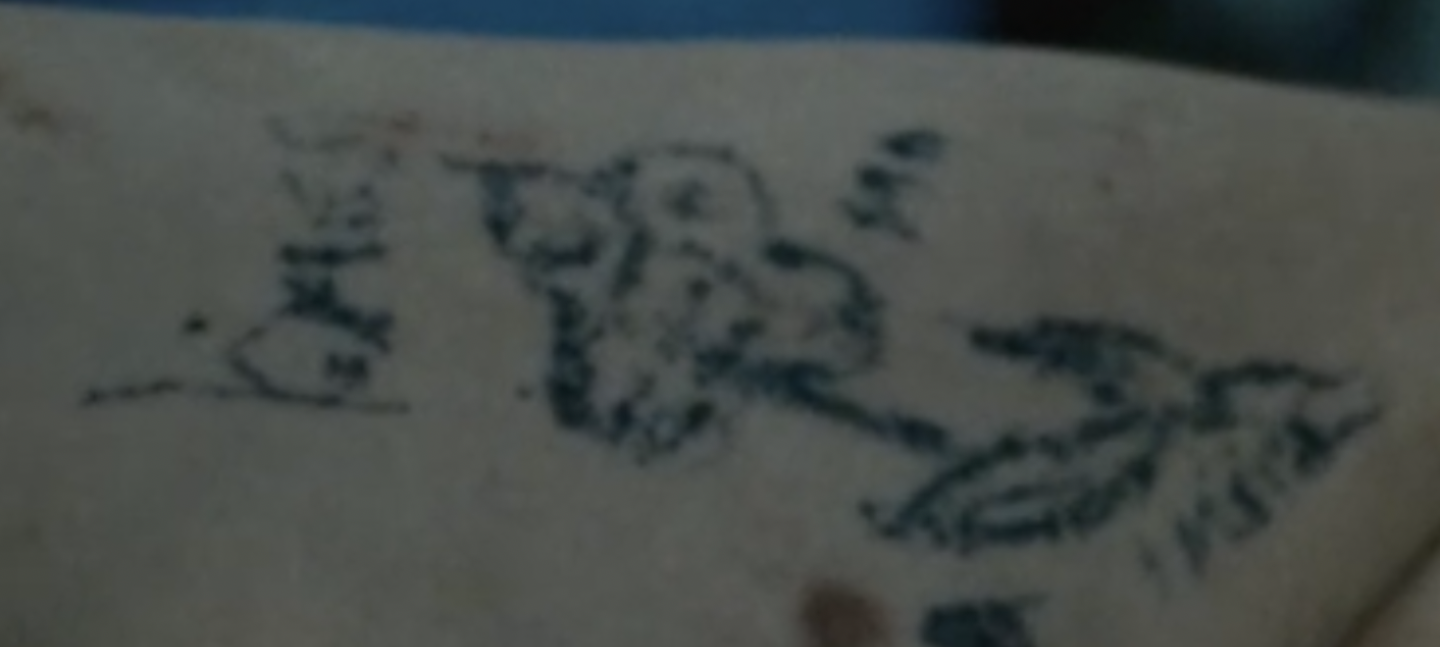
Author, journalist and former Studios resident Juliet Jacques reflects on her love of the beautiful game, documenting how it has changed in the wake of Covid-19 for this week's long read.

Author, journalist and former Studios resident Juliet Jacques reflects on her love of the beautiful game, documenting how it has changed in the wake of Covid-19 for this week's long read.
FA Premier League, 19 June 2020
Norwich City 0 Southampton 3 (Ings ’49, Armstrong ’54, Redmond ‘79)
Firstly, obviously, the date is wrong. One of the most comforting things about being a football fan, and especially a season ticket holder, is the consistency of its calendar: home matches once a fortnight, on average, starting with early season optimism in the August sun; a sense of what kind of season your club is having by the end of autumn; the pile-up of fixtures around the New Year, and that sense of noble self-sacrifice as you unconditionally support in the grinding cold; the arrival of spring and that final hope that the team might turn around a bad campaign, or see out a good one; that final fixture, sometime in May, and one last evening down the pub with your friends to take stock of it all. In odd-numbered years, June is football-free, with pre-season friendlies starting in mid-July; in even-numbered ones, an international tournament straddles those two months, when I watch as many televised matches as life allows.
Not this year, though. It didn’t feel quite right going to the last match I attended, at Tottenham, and not just because it was a fifth-round tie moved from its customary Saturday afternoon to a Wednesday evening because the importance of the FA Cup has gradually been downgraded by the more lucrative English Premier League and European Champions League. By 4 March, speculation was rife that Italian football would halt because of Covid-19, which by then had definitely arrived in Britain. As no-one was talking about stopping the English season, or even not going to the game, I found a ticket for the sold-out match at the last minute and boarded a packed 149 bus to the Tottenham Hotspur Stadium, where I watched my team, Norwich City, win 3-2 on penalties after an exhilarating 1-1 draw, alongside 58,000 other people.
Jubilant, I only reflected on the public health implications of this a week later. I hadn’t planned to go to Norwich’s next home game because I was booked to speak at the Media Democracy festival with Jeremy Corbyn and others. That was cancelled on the Wednesday; as I hadn’t lent anyone else my season ticket, my first thought was to go to the Southampton match. After that crushing election defeat in December, terminating a period in which political organising came above all (including Norwich, as I increasingly missed games for it), I had felt utterly hopeless. Starting to enjoy football again had been a first step towards rebuilding my life, as the dumb insolence with which it always continued in the face of global events provided some strange reassurance, and finding ways to rebuild relations with fellow fans who voted differently made me feel less marginalised. Friends online argued about whether it was safe to go. I felt it wasn’t, but this became academic on Friday as the Premier League announced the indefinite suspension of all fixtures for the first time since World War II.
Three months later, as daily British death rates from Covid-19 far outstripped other European countries, England’s top two divisions resumed, diverging from the lower ones (and the entire Scottish system), which concluded by placing teams according to average points per game. Every top-flight match was televised to compensate for the fact that, in this new age of social distancing, no fans were admitted. I thought it was returning for the wrong reasons – to distract from the ongoing catastrophe that followed the late lockdown, and because the multi-million-pound English football industry was losing money. On returning to training in May, a Norwich player tested positive for Covid-19, and I could find no enthusiasm for this heavily hyped ‘Project Restart’. How could I connect with football – clearly still a public health risk even in such traduced circumstances – if I wasn’t allowed to attend?It’s not that I boycott any match I can’t make – quite the opposite. In New York to promote my book in 2015, I dragged my host from Brooklyn to Manhattan to watch our Premier League fixture at Chelsea in a bar called The Football Factory at 10am. In Australia a year later for a literary festival, I stayed up to listen online to a league match that kicked off at midnight local time, and was delighted to find my changeover on the flight back coincided with our midweek home game against Wigan, which I followed via Dubai Airport’s Wi-Fi. I have similar stories from other places – and at last year’s Media Democracy festival, where I asked crowd members at the panel I hosted to update me on City’s match at Rotherham – but for me the live experience is everything: I’ve been to matches in France, Spain, Italy, Denmark, Switzerland, Romania, Greece, Turkey, Ukraine and Kyrgyzstan, often timing holidays or arranging work trips around a potential visit to a stadium, prioritising this over listening to or watching Norwich.
I’d been thinking about not renewing my season ticket, tired of spending entire Saturdays (and large sums of money) travelling from London to Norwich, often on rail replacement buses. The introduction of Video Assistant Referees was nearly a deal-breaker, clearly introduced for television viewers rather than those at the ground, making every moment provisional in a sport whose emotional core lies in its speed and spontaneity: I joined in every chant of “Fuck VAR” and “It’s not football any more”, whether it benefitted Norwich or (more frequently) not. Every fan has matchday rituals, and my favourite is to touch a yellow and green sticker on a lamppost near Carrow Road that reads, ‘At the stadium, by the river / Love on the terraces’ – a nod to a 1983 single by Norwich punk band Serious Drinking, and the only song I know to mention the Barclay End, where I sit. The sticker has an ecstatic photo of Ted MacDougall, City’s star striker in the mid-1970s, throwing himself into a crowd of fans celebrating a goal, and as soon as the Premier League restarted, behind closed doors, I realised it was these little aspects of the matchday experience I missed more than what happened on the pitch.
Out of boredom and morbid curiosity, I watch the rescheduled Southampton match on a new freeview channel, Pick TV, after seeing the club promote it on Instagram and Twitter using the hashtag #ApartBut Together. Watching Norwich has often made me sad, but never like this: the first thing I see, alone in my flat, is my seat being covered by a yellow and green tarpaulin by people in masks, directed by former club chairman Ed Balls. Before the kick-off, the teams take the knee in support of Black Lives Matter, in a season where open racism from the stands has been prominent, six days after the Democratic Football Lads Alliance participated in a far-right protest against the anti-racism movement. The vocal, reactionary elements of the Norwich crowd have long upset me, with songs mocking unemployment whenever we play Liverpool, and frequent chants in support of farmer Tony Martin twenty years after he shot and killed an Irish Traveller who broke into his house; I can’t help wondering what the reaction would have been like if the fans were present, and coming to unfavourable conclusions.
As it happens, Pick TV play pre-recorded crowd noise over the action, starting with the club’s long-standing anthem, a quite Dickensian song called On the Ball City, which the fans always sing just before kick-off, on cue from the PA. Mostly, this soundtrack is an indistinct murmur, but nonetheless, as I look away from the screen to write notes for this piece, I momentarily forget it’s fake. The first half feels like a pre-season friendly – the players, especially ours, don’t look fit, or even like they want to play. Each side has a couple of half-chances, but I don’t feel my usual excitement or anxiety. I don’t feel much at all, but perhaps that’s because so little has happened by half-time, when the pundits wonder if the lack of a crowd accounts for the lack of urgency in what is, for bottom-of-the-table Norwich, a must-win match. I think back to my favourite ever City game – the second leg of our UEFA Cup tie at home against Bayern Munich in November 1993, which I watched on the BBC. I know John Motson’s commentary for our winning goal off by heart, beginning with “The Norwich crowd really doing all they can to lift the side, and I think they won that tackle for Jerry Goss” as the supporters broke into a loud rendition of On the Ball City. The move ended with Goss scoring from close range from Chris Sutton’s flick-on before racing to the fans to celebrate, and I agree that the loss of this symbiotic relationship has affected the play even more than anticipated.
A few minutes into the second half, Southampton take the lead. If I were there, I’d be shouting “No!” (or worse), angrily asking whoever stood next to me why our centre-backs didn’t track their centre-forward, before defiantly singing On the Ball City in the hope of lifting the side. Here, though, I just feel nothing: I wonder if it’s because we’re losing. On Twitter, I ask a few Southampton-supporting friends how they feel, and they say the same; we all feel the emptiness even more strongly five minutes later when Southampton score again. I let out a Pavlovian “go on” during one of Norwich’s rare attacks, then feel a tiny twinge of sadness when ex-Norwich winger Nathan Redmond – who scored a crucial goal for us in the 2015 play-off final that won promotion to the Premier League, when I was part of the 85,000 crowd at Wembley – hits the final goal. If you’d told me that day, in my post-match joy, that five years later I would watch Norwich lose a big relegation battle 3-0 at home and I would just feel nothing, I would have been heartbroken, or more likely, just not believed you. As the match limps to its conclusion without further score, I just note that whoever is creating the soundtrack has it all wrong: three down with ten minutes to go, the crowd noises would not be unified chants of On the Ball City but grumbles, boos and the thud of seats flipping up as people fucked off down the pub.
Five weeks later, the League season has ended – on 26 July – and Norwich have been relegated, losing every single match since the restart. No decision has been made on how Euro 2021 will work, but it has on when the 2020-2021 season will start and how it will be scheduled, but not on whether fans will be admitted. If we are, I will have to decide if I feel safe getting a packed train (or bus) to Norwich, even before I think about sitting in a 27,000-seater stadium, although it’s unlikely that clubs will be allowed to fill their grounds to capacity. However, I already know that if we aren’t allowed in, I won’t be watching on television, as the most unbearable feeling I’ve ever experienced as a football fan is the most recent: the feeling of total alienation.